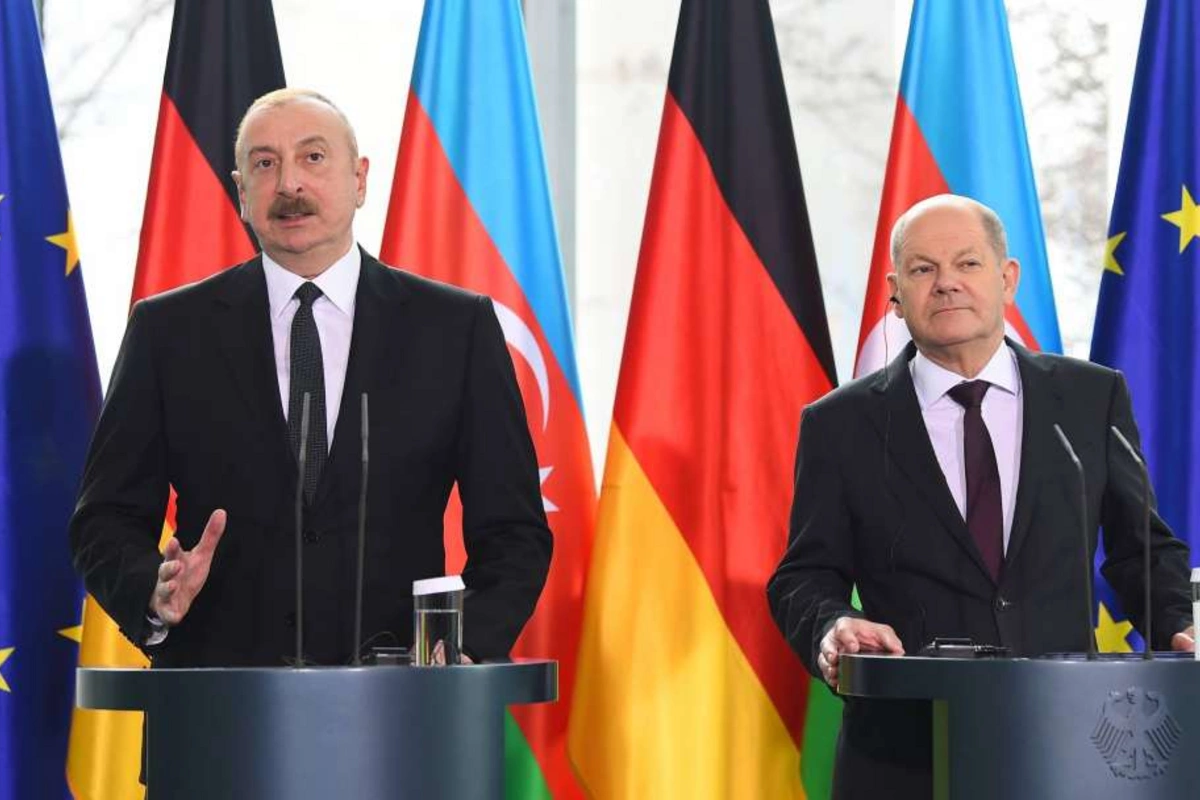
Azerbaijan skillfully balances between East and West, leveraging its geopolitical position. For Germany, with few alternatives in energy supply, this represents an opportunity to strengthen its standing amidst growing competition for resources.
president.az
Amid the global energy crisis and Europe's increasing shift away from Russian energy resources, Azerbaijan is emerging as a strategic partner for Germany. This partnership goes beyond natural gas supplies, extending to joint projects in "green technologies," making the cooperation between the two countries especially promising.
Green Energy: The Future of Partnership
Azerbaijan is set to become Germany's main partner in the post-Soviet space for the development and production of green technologies. Initiatives such as the construction of solar and wind power plants and the development of energy storage technologies could form the basis of strategic cooperation. However, challenges remain: Are German companies ready to invest in a region with a complex political climate, and will such efforts be enough to offset the decline in Russian energy supplies?
The German government is well aware of the risks of investing in the region but actively supports initiatives by its companies. This sends a crucial message: without state involvement, attracting German investors to Azerbaijan would be nearly impossible. Berlin appears ready to provide a "green corridor" for its enterprises, understanding that the energy transition requires new partners and stable suppliers.
The Reality of Gas: A Strategic Necessity
In addition to ambitious green energy projects, Germany is increasing its purchases of Azerbaijani natural gas. This is a logical step as Europe rapidly reduces its dependence on Russian supplies, and Baku positions itself as a reliable partner. The Southern Gas Corridor, which connects the Caspian region to European consumers, plays a pivotal role in these plans.
At the same time, Azerbaijan skillfully balances between East and West, leveraging its geopolitical position. For Germany, with few alternatives in energy supply, this represents an opportunity to strengthen its standing amidst growing competition for resources.
Azerbaijan offers two key advantages:
1. Resources and Infrastructure: Natural gas and the potential for renewable energy development make it an attractive partner.
2. Geopolitical Flexibility: Baku demonstrates resilience in a complex regional environment and a willingness to cooperate with Europe.
However, challenges persist. Firstly, implementing large-scale projects requires significant investments and technologies that are not always easy to scale quickly. Secondly, political risks, including regional conflicts, could deter Western investors.
For Germany, this alliance is not so much a choice as a strategic necessity. The question is not whether to cooperate with Azerbaijan but how to build effective long-term relations. For Azerbaijan, the partnership presents a unique opportunity to solidify its position on the global energy stage and showcase its readiness to become a key player in the post-carbon era.
Thus, this partnership is more than just another example of energy cooperation. It is a test of Europe's and post-Soviet countries' ability to find common ground during a period of global transformation. As the situation unfolds, Azerbaijan is not only becoming a resource supplier but also a platform for developing the technologies that will shape the future of energy.
Share on social media